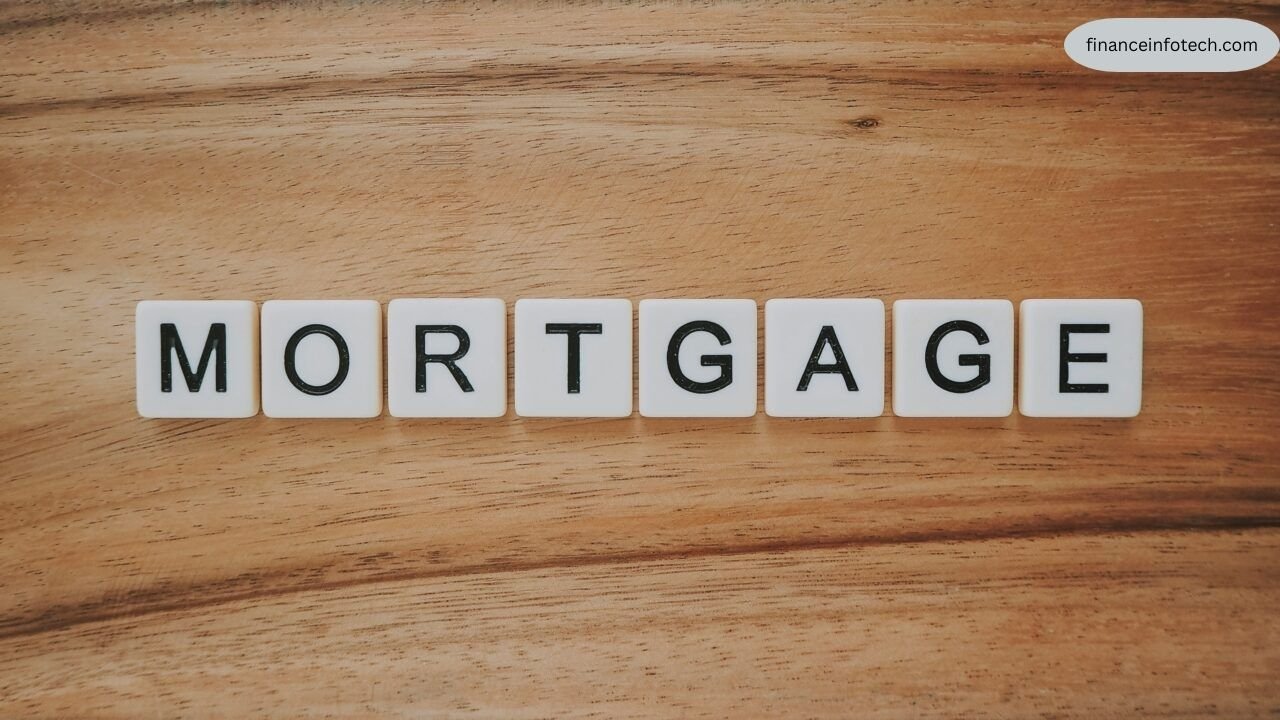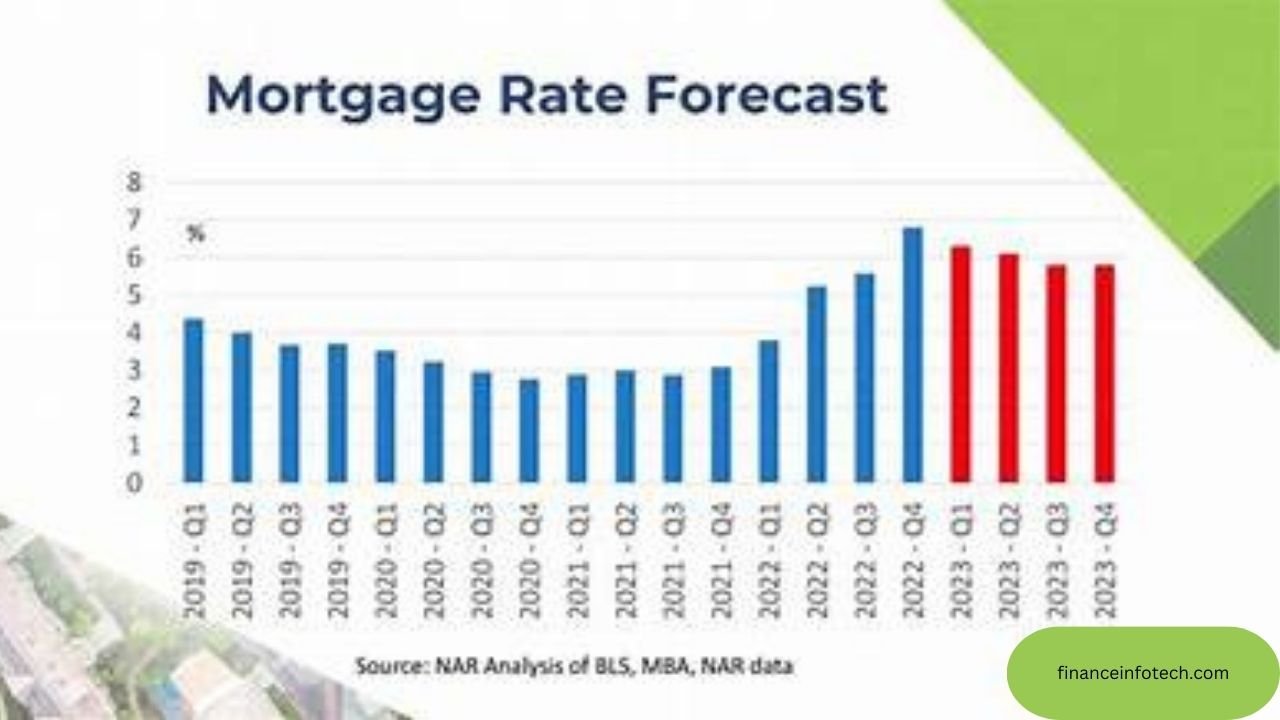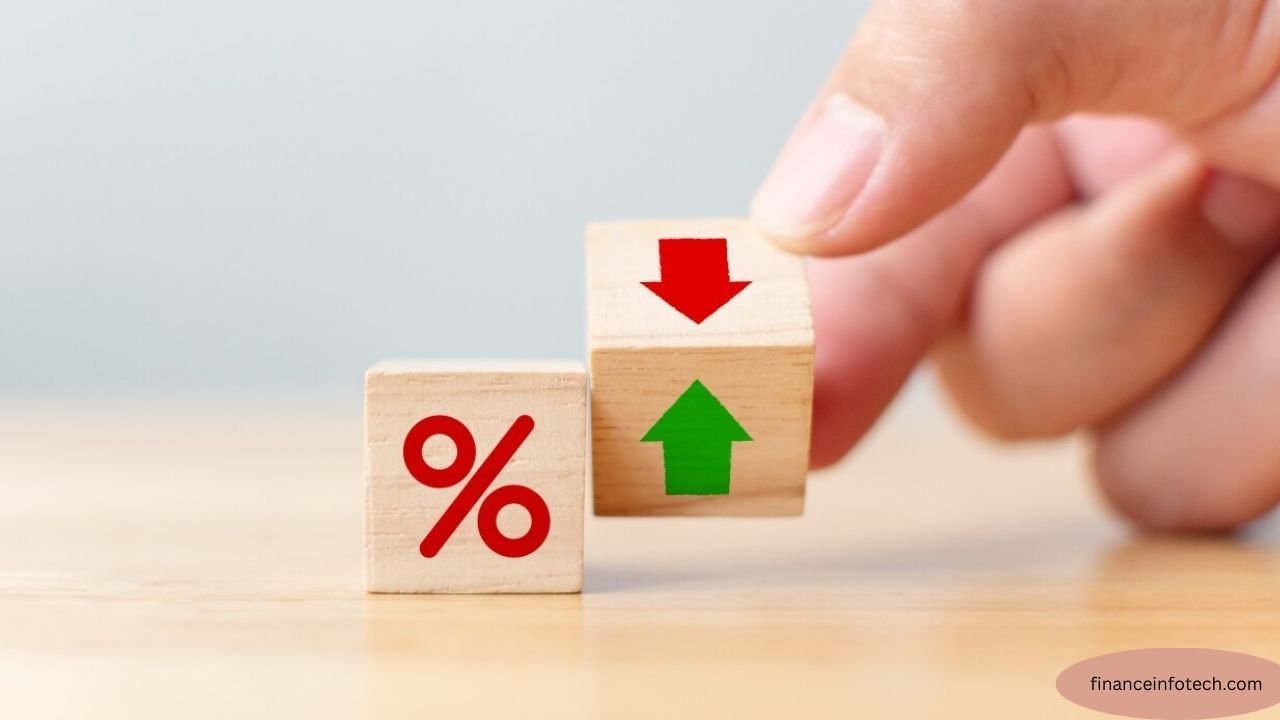Table of Contents
Mortgage Rates play an important role in the housing and economic markets. We will also look at the trends affecting the market and how the rates of individual loans are calculated. This blog is related to financeinfotech.com. We will analyze the impact of these rates on individual homebuyers as well as the housing market. Finally, we will answer some frequently asked question to help you make an informed decision about your home buying journey.

What factors influence mortgage rates?
They do not change by themselves. The result is a complex interplay of economic forces, government policies, and market sentiment. Imagine it as a dashboard, with multiple dials and less of a single button. Here are the main factors.
The Federal Reserve and Monetary Policy
The Federal Reserve (the “Fed”) does not set directly, but its actions have a significant impact. Fed’s main tool is federal funds rate. This is the rate of interest at which banks lend each other money overnight. The Fed increases this rate in order to combat inflation. This makes it more expensive for the banks to borrow. The increased cost of borrowing money is passed onto consumers through higher interest rates for all loans, including mortgages. In the opposite case, when the Fed lowers its federal funds rate in order to stimulate an economy that is sluggish, mortgage rates fall.

The Bond Market (Specifically Mortgage-Backed Securities).
It’s here that things get a little more technical but are essential to understanding the daily movements of rates. Mortgage-backed Securities (MBS) are sold on the bond markets to investors. Investors must find the interest rates (the “yield”) on these mortgages attractive. The yield of MBS is competitive with other safe investments. Most notably, the U.S. Treasury 10-year note.
As the price of Treasury bills increases, so does their yield. MBS yields tend to drop as well, in order to remain competitive. This lowers mortgage rates for consumers. In the opposite scenario, if investors begin selling Treasury bonds, driving their price down (and yield up), MBS must increase to attract buyers. This will lead to higher mortgage interest rates. The 10-year Treasury yield can be used to gauge the direction of mortgage interest rates in real time.
The State of the Economy
The direction of the market and lender confidence are directly affected by broad economic indicators.
The Fed also raises its benchmark rate due to high inflation, which further increases mortgage rates. GDP (Gross Domestic Product): An economy that is growing and strong usually results in higher mortgage rates. In a strong economy, the demand for credit and competition for capital increases, driving up borrowing costs. We can receive different rates from different banks the same day. Lenders have to take into account their operating costs, profit margins and perceived risk in the current market. In times of economic instability, lenders might increase their margins and charge slightly higher rates to borrowers.
Navigating an Changing Landscape
The Federal Reserve’s aggressive campaign of rate increases in recent decades was triggered by the sharp increase in inflation in 2021. Mortgage rates rose dramatically, from under 3% to over 7% within a short time. This rapid rise in mortgage rates had a dramatic impact on housing affordability. The monthly payment for a buyer with a $400,000 mortgage would increase by over $1,000. This was a shocking increase, which priced many buyers out of the housing market.
The market today is volatile. For some, they are considering a strategy to buy now and refinance later, if rates fall.

What is the Personal Mortgage Rate?
Market forces determine the general interest rate environment. However, the rate that you will be offered is based on your personal financial profile. Before approving your loan and setting the interest rate, lenders assess your risk level. The following are key factors:
Score of Credit: One of the most significant factors. Credit score is a signal to lenders that you’re dependable and pay your bills on time. Borrowers who have excellent credit (740 or above is typical) get the lowest rates. A lower credit score may result in a higher interest rate or even the denial of a loan. Deposit: An increased deposit reduces the risk to the lender. You can avoid PMI by putting down at least 20%. In addition, you may qualify for a lower interest rate if you pay more. Smaller down payments mean the lender will take on more risk and charge a higher interest rate to compensate.
Ratio of Loan-to Value (LTV):
This ratio is closely linked to your down payment. LTV is a percentage of your home’s value that you borrow. A lower LTV, which means a larger down payment, is less risky to the lender. This can result in a better rate.
Loan Term and Type: Your rate is affected by the type of loan that you choose. The most common mortgage is a 30-year fixed rate loan. However, 15-year fixed rate loans have typically lower rates of interest (though they require higher monthly payments). Adjustable-rate loans (ARMs) usually start at a lower rate, but they can increase after a certain period.
Impact on homebuyers is immediate and direct
Rates higher means lower purchasing power. When rates are high, buyers can afford to buy a home that is less expensive for the same monthly payment. It can lead buyers to consider smaller homes, different neighborhoods or even put off their home search altogether. The housing market cooled significantly when interest rates started to rise.
The housing market is affected by rising interest rates. The pool of buyers is reduced, resulting in a decrease in demand. The homes stay on the market for longer and in some cases, price growth is slowed or reversed. It can lead to a “lock-in effect” where homeowners who had ultra-low rates on their mortgages in previous years are reluctant to sell and take out a higher-rate mortgage. This can reduce the number of homes available for sale and complicate the market further for potential buyers.

The power of knowledge in the housing market
The mortgage rates are not just numbers displayed on a computer screen. They are an important factor in determining the financial health of millions of Americans and the strength of the U.S. economic system. They are the gatekeepers for prospective homebuyers. Understanding the factors that affect these rates, from Federal Reserve policy to market dynamics on a global scale, transforms you into an informed participant.
You can’t control the economy but you can control how prepared you are financially. You can put yourself in a better position by building up a good credit rating, saving regularly, and knowing how your profile affects the interest rate offered. Knowledge, preparation and strategic shopping will help you unlock the best financing in today’s volatile markets.
FAQs
1 -What’s the difference between a rate of interest and an APR (annual percentage rate)?
The interest rate is the price of borrowing the loan principal. The Annual Percentage Ratio (APR) provides a more comprehensive measure of the costs of your loan. The
2 -Should I go for a fixed rate or an adjustable-rate mortgage?
Fixed-rate mortgages lock in your interest rates for the entire life of the loan. This ensures predictable monthly payments. This is a good choice, particularly in an environment of rising rates.
3 – What are mortgage points?
Mortgage points are fees that you pay at closing to get a lower rate of interest. A point costs about 1% of your loan amount, and can reduce your interest rate by as little as 0.25%. You can save money by paying points over time, but it is important to determine the “break-even point” to know if the cost upfront is worth it.
4 – How can I obtain the best mortgage rates?
Improve your financial profile to get the best rate. To lower your DTI, work on improving your credit score. Save for a bigger down payment and pay off other debts. Shop around to compare quotes and obtain quotes from at least three or five lenders.
5 – How often are mortgage rates changed?
Mortgage rates are subject to change every day, sometimes multiple times per day. Lenders change their rates based on the real-time movement of the bond market, and other economic information.
Conclusion
Rates of mortgages play an important role in the housing and economic markets. These rates directly affect the affordability of houses for buyers, and they influence borrowing and investing decisions throughout the economy. The rates are influenced by a variety of factors including central bank policy, inflation, economic growth and market demand.
Leave a Reply